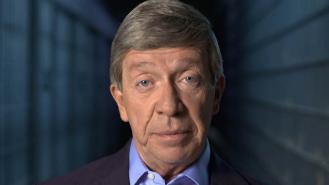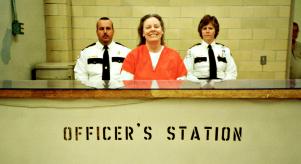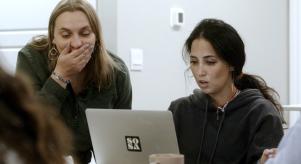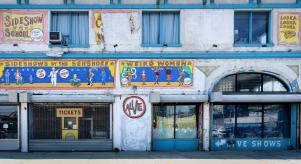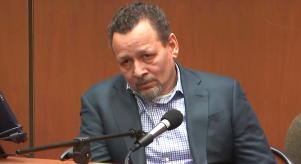
Q&A with Joe Kenda
Do you remember the first case you ever solved?
Oh, of course. In fact, we just did an episode, coming up in Season 4 called ‘My First Case,’ where I originally joined the Police Department. I went to investigations after I clawed my way in there. I was a Burglary Detective, and I was not assigned in Homicide, but that is where I wanted to be.An opportunity presented itself, and I took it. I was universally despised on the Police Dept. because I was one of the first people they ever hired who was a college graduate. They referred to me as the ‘college boy’ in a very derogatory way. I solved their unsolvable case for them in five days, which put me in Homicide, and made them hate me even worse, which I really enjoyed. You solved an impressive 92% of your cases. Are there any of the remaining 8% that still bother you to this day?Yes, 92%. The national average in the United States runs between 50% and 60%, so I am anywhere from 30 to 40 points higher than that.The remaining 8% still bother me all day, every day. They absolutely all do, and I know who did every one of them, and I cannot prove it in a court. That is maddening, it is absolutely maddening. I still think about it every day, I really do. What do you think was the key to your success rate?It is not because I am smarter at tracking them; it is because I am more determined. I will not go away. That is the difference. It was not a job to me, it was a mission. I would have done it for free, except my wife insisted they pay me, because we have two children, of course.After I became a boss, I hand selected everybody to come into Homicide. I said to every one of them, “Do not ever tell me you are hungry, do not ever tell me you are tired, do not tell me your wife has to see you. If I thought you needed a wife, I would issue you one. This is the work. You do not want to do this? Go do something else, but do not complain to me,” you know?As a result, my people were completely loyal to the job and to me, because there was no doubt about where I stood, and therefore, no doubt about where they stood, and everybody appreciates that. They know the rules.
How did you become a homicide investigator?
My interest fell to it. To take you back, when I was nine years old my parents took me to the Pittsburgh Zoo. This was a huge deal in the kid world – my first visit to a zoo, I was just thrilled.When we got to the zoo, there was a big sign, and it read, “Around this corner is the most dangerous animal on earth.” I rushed around that corner, along with half the crowd, and it was a mirror from ceiling to floor. Everyone was looking in the mirror, and everyone was wondering, “Well, what is this about?”That was an epiphany for me. It is true that humans are the most dangerous animals on this planet.If you are going to investigate crime, I want to investigate the worst crime, which has to be homicide, because the worst can happen to you for having done it, that is why. How did you get involved in the show?Absolutely accidentally. I had a guy who had seen me on television, because I did a lot of press in this time, in the United States, national press stuff as well. He wrote me a letter which I threw away. He wrote me a second letter and I threw that away. He wrote a third letter and he said, “I know you are throwing these away,” and I laughed out loud. My wife said, “What is that?” I said, “It is a letter from some guy who says he is going to put me on TV, like that is going to happen”.My Irish wife said, “You are going to have to call that man.” “No, I am not going to call him.” Smack, smack. “Yes, you are going to call him.” That went on for three days. Finally, I said, “Alright, I will call him”. And so I did… and the rest, as they say, is history.
How does a typical day’s filming go for you?
We’ll usually film two episodes per day. I’ll sit and talk about a case for four or five hours and they will edit that no end, of course, to get pieces that they like or pieces that fit in and how they do it is they do a transcript of what I say and they provide that to the Director of the re-enactments and he uses what I say as a guide to write a script for the actors who play the re-enactment parts, so that it all fits together, because I don’t know what I’m going to say until they turn the camera on. So they interview me first and then they do the re-enactments afterwards, so that whatever I say fits in to what they’re going to do. Were you not tempted to get involved with the reconstructions?No, never. I stay out of it altogether. In fact, I’ve gone to the set a couple of times – they do the re-enactments or reconstruction, as you call it, in Knoxville, Tennessee, which is about 500 miles from where I live. Now occasionally my wife, Kathy and I have gone there for public relations to shake hands with everybody that’s on the crew.But as far as being any part of what they do, I stay out of it. “You do whatever it is you’re going to do. I said what I said, you’ve got that written down somewhere, now knock yourself out.” As to how they want to do the rest of it, it’s up to them.We came to an understanding between me and all of the television types, I said, “Here’s how this is going to work. You turn the camera on, I talk, I’m done, then I leave. You take what I said and you do whatever it is you want with it but you’re not going to tell me what to say and you’re not going to tell me what to do.”I don’t make television. I make murder cases. I don’t know a thing about making television, the producers do, so you know, let them do that. I stay out of it. What do you like to do when you’re not filming?I’ve been doing travelling with my wife, which we never could do before because I was always on-call all the time and I worked all the time and so now it’s kind of her turn. It’s kind of a blast. We met in High School. We’ve known each other all our lives. So now it’s an opportunity to get reacquainted. After 25 years of not seeing her very often now she sees me all the time, which she probably finds to be annoying on a few occasions, but for the most part we go out and travel and see the world and meet people and have a good time. Good for us.
